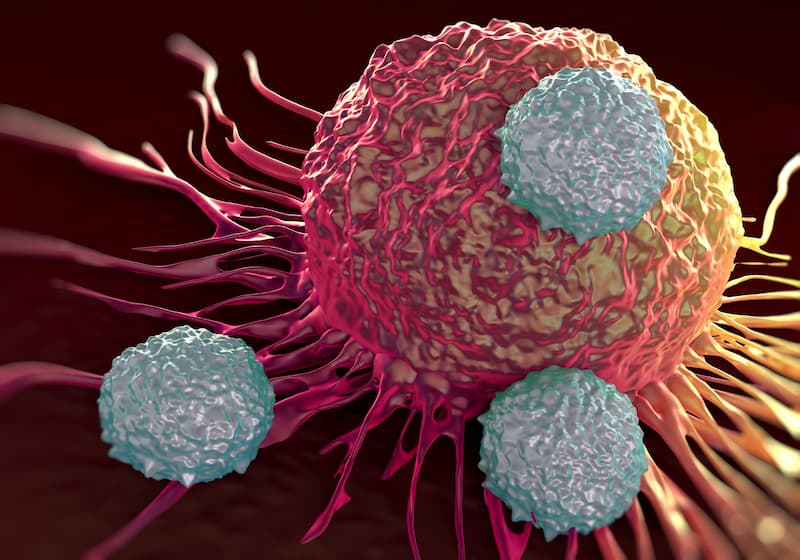EU’s CHMP Has Positive Opinion for Subcutaneous Nivolumab in Solid Tumors
Data from the phase 3 CheckMate-67T trial support the CHMP’s recommendation for approving subcutaneous nivolumab across various solid tumor indications.
The CHMP based its opinion on data from the phase 3 CheckMate-67T trial (NCT04810078), in which investigators assessed the efficacy of subcutaneous vs intravenous nivolumab among patients with metastatic or advanced clear cell renal cell carcinoma.

The Committee for Medicinal Products for Human Use (CHMP) of the European Medicines Agency (EMA) has recommended the approval of a subcutaneous formulation of nivolumab (Opdivo) with hyaluronidase-nvhy (Opdivo Qvantig) as a treatment for multiple adult patient populations with solid tumors in the EU, according to a press release from the developer, Bristol Myers Squibb.1
The subcutaneous formulation of nivolumab is indicated for use as monotherapy, monotherapy maintenance after a patient completes nivolumab plus ipilimumab (Yervoy), or in combination with chemotherapy or cabozantinib (Cabometyx). The European Commission will now review the CHMP’s opinion and decide on the agent’s approval by June 2, 2025.
“The positive CHMP opinion is an important step forward in the evolution of immuno-oncology and in the potential of subcutaneous nivolumab to help transform the lives of people living with cancer,” Dana Walker, MD, MSCE, nivolumab global program lead at Bristol Myers Squibb, stated in the press release.1 “We look forward to bringing the same high-quality care that transformed cancer treatment with an administration method that has the potential to improve the patient experience and efficiency of healthcare systems in Europe.”
The CHMP based its opinion on data from the phase 3 CheckMate-67T trial (NCT04810078), in which investigators assessed the efficacy of subcutaneous vs intravenous nivolumab among patients with metastatic or advanced clear cell renal cell carcinoma (RCC). Investigators presented pharmacokinetics, safety, and efficacy data from the trial at the 2024 ASCO Genitourinary Cancers Symposium.2
Data showed an objective response rate (ORR) by of 24.2% (95% CI, 19.0%-30.0%) per blinded independent central review (BICR) with subcutaneous nivolumab vs 18.2% (95% CI, 13.6%-23.6%) with intravenous nivolumab (relative risk [RR], 1.33; 95% CI, 0.94-1.87). The median PFS per BICR was 7.23 months (95% CI, 5.13-7.49) vs 5.65 months (95% CI, 5.29-7.39) in each respective arm (HR, 1.06; 95% CI 0.84-1.34).
Furthermore, subcutaneous nivolumab showed noninferiority for time-averaged serum concentration of nivolumab over 28 days (Cavg28) vs intravenous nivolumab, yielding a geometric mean ratio of 2.098 (90% CI, 2.001-2.200). The subcutaneous formulation also elicited noninferiority for trough serum concentration at steady state (Cminss), with a reported geometric mean ratio of 1.774 (90% CI, 1.633-1.927). Anti-drug antibody positivity occurred in 22.8% of patients who received subcutaneous nivolumab vs 7.0% of those who were treated with intravenous nivolumab.
Safety data appeared to be consistent between the subcutaneous and intravenous therapy arms. Any-grade adverse effects (AEs) occurred in 93.1% of the subcutaneous arm vs 93.5% of the intravenous arm, with grade 3/4 toxicities reported in 35.2% and 40.8%, respectively. Investigators highlighted no anaphylactic reactions with subcutaneous or intravenous nivolumab.
In the multicenter, open-label, phase 3 CheckMate-67T trial, patients with advanced or metastatic clear cell RCC and disease progression following 1 or 2 prior lines of systemic therapy were randomly assigned 1:1 to receive nivolumab intravenously or subcutaneously. Patients received intravenous nivolumab at 3 mg/kg every 2 weeks (n = 247) or subcutaneous nivolumab at 1200 mg plus hyaluronidase every 4 weeks (n = 248).
The trial’s primary end points were Cavg28 and Cminss. A key secondary end point was ORR per BICR. Other secondary end points included the incidence of anti-nivolumab antibodies and neutralizing antibodies.
The FDA approved subcutaneous nivolumab with hyaluronidase for all solid tumor indications for which intravenous nivolumab previously received approval in December 2024.3 Supporting data for the approval came from the CheckMate-67T trial.
References
- Bristol Myers Squibb receives positive CHMP opinion for the subcutaneous formulation of Opdivo® (nivolumab) across multiple solid tumor indications. News release. Bristol Myers Squibb. March 28, 2025. Accessed March 31, 2025. https://tinyurl.com/2fa7v8zd
- George S, Bourlon MT, Chacon MR, et al. Subcutaneous nivolumab (NIVO SC) vs intravenous nivolumab (NIVO IV) in patients with previously treated advanced or metastatic clear cell renal cell carcinoma (ccRCC): Pharmacokinetics (PK), efficacy, and safety results from CheckMate 67T. J Clin Oncol. 2024;42(4):LBA360. doi:10.1200/JCO.2024.42.4_suppl.LBA360
- FDA approves nivolumab and hyaluronidase-nvhy for subcutaneous injection. News release. FDA. December 27, 2024. Accessed March 31, 2025. https://tinyurl.com/42rfemr7
How Supportive Care Methods Can Improve Oncology Outcomes
Experts discussed supportive care and why it should be integrated into standard oncology care.